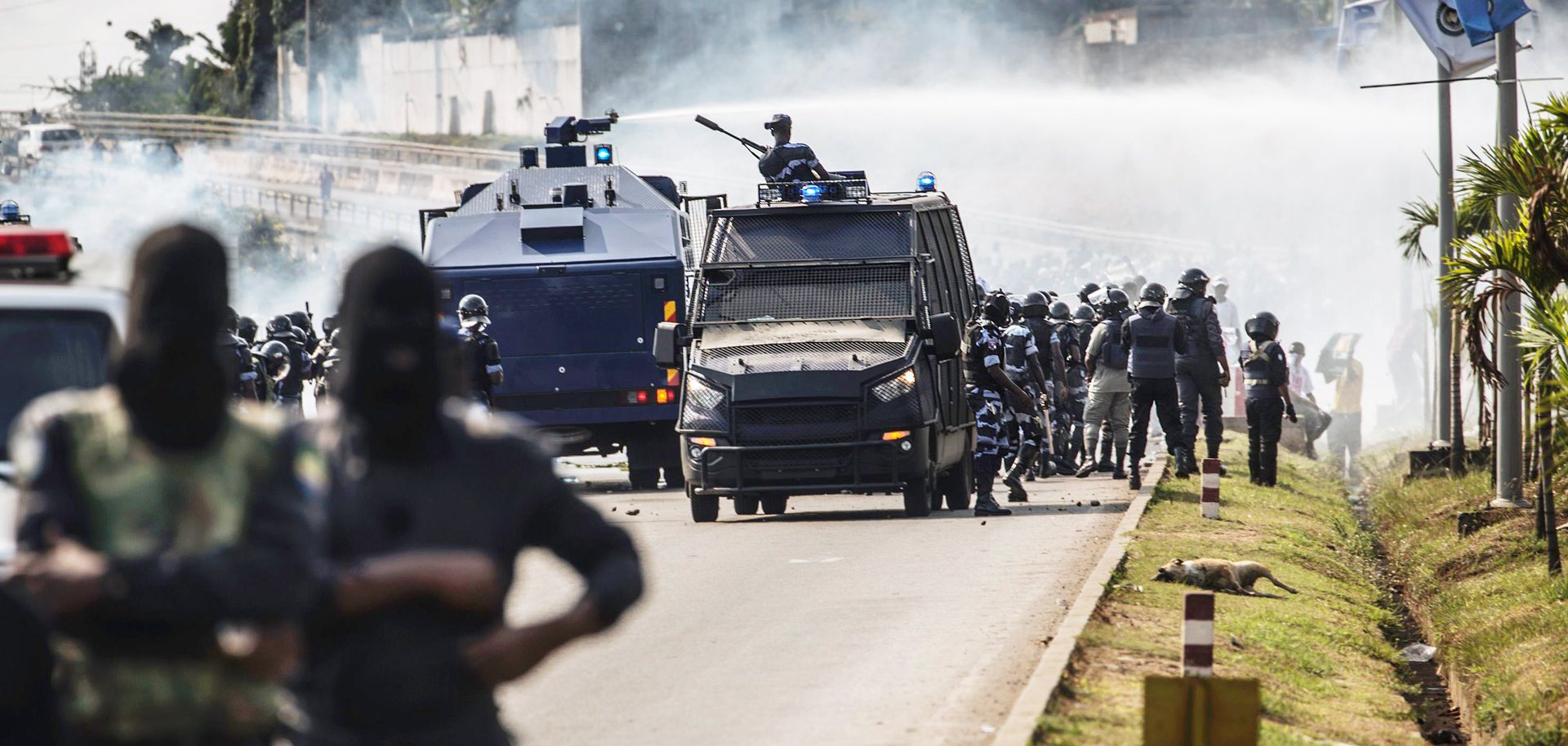ASSESSMENTS
The Challenge of Unseating Gabon's Entrenched Leader
Sep 2, 2016 | 09:15 GMT

(MARCO LONGARI/AFP/Getty Images)
Summary
After Gabonese officials announced that President Ali Bongo Ondimba had narrowly won another term in office, the uneasy calm that had settled over the Central African state as its citizens awaited the outcome of the Aug. 27 presidential election was shattered. According to the provisional results released Aug. 31, Bongo received 49.8 percent of the vote, while his primary challenger received 48.2 percent. Riots immediately broke out across the country. Protesters have flooded the streets of Libreville and several other major cities to denounce the ruling, which is widely perceived to be the result of electoral fraud, and clashes between demonstrators and security forces are reportedly ongoing. According to several media outlets, internet access has been cut, and security personnel have stormed the headquarters of the political opposition, resulting in at least one death and the arrest of several campaign leaders. The Gabonese National Assembly building has also been damaged by fire, and total casualty estimates continue to vary widely.
Meanwhile, international actors such as the United States, the European Union and France — Gabon's former colonial power — have noted systemic voting irregularities and have called on the Gabonese government to publish the tallies from the polling stations. Regardless of whether Libreville acquiesces to their demands, the situation will remain volatile as the opposition struggles to wrest power from an administration that has ruled the country for nearly 50 years.
Subscribe Now
SubscribeAlready have an account?
